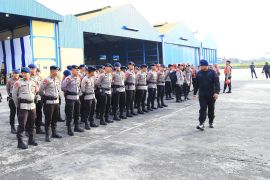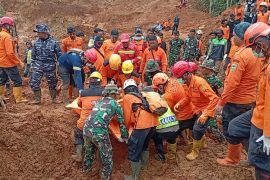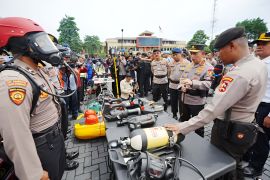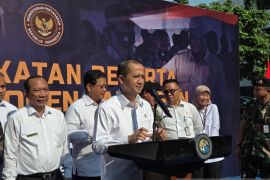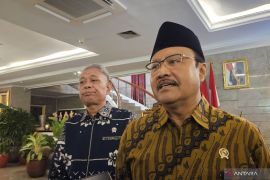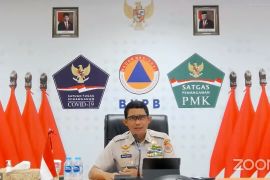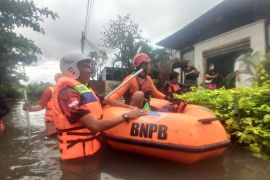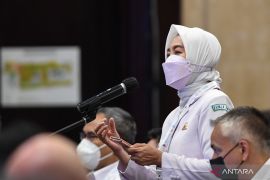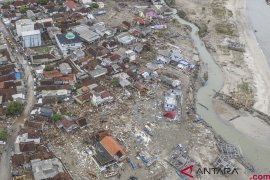The report `Improving the Assessment of Disaster Risks to Strengthen Financial Resilience', is the first to be delivered as part of the G20 disaster risk management agenda.Jakarta (ANTARA News) - Leaders of the world`s largest economies, while meeting at the G20 Summit in Los Cabos, Mexico, recently highlighted the importance of disaster risk management as an integral part of development policy.
The statement, made in a joint report by the World Bank and the G-20`s host Mexico, and received by ANTARA here on Monday, emphasized the leaders` concern regarding losses from natural disasters in developed and developing countries.
The joint report, entitled "Improving the Assessment of Disaster Risks to Strengthen Financial Resilience", is a listing of actions undertaken in G20 and other countries to protect their populations and assets against losses from natural disasters.
The report also outlines how the G20, the World Bank, and other international partners can play a larger role in cooperating with national and local authorities on the challenges set out in the report.
"The report `Improving the Assessment of Disaster Risks to Strengthen Financial Resilience', is the first to be delivered as part of the G20 disaster risk management agenda," said Jose Antonio Meade, Finance Minister of Mexico.
He added that it is increasingly clear that the dramatic increase in disaster losses around the world is the result of uncontrolled development. Rapid urbanization and changes in climate patterns will exacerbate this trend.
"The G20 recognizes that there is an urgent need to integrate risk consideration at all levels of development planning in order to increase the resilience of communities and national economies," he explained.
Meanwhile, Robert B. Zoellick, President of the World Bank Group, stated when natural disasters strike, the world not only sees the tragedy of human suffering but also the less visible effects that can be just as devastating to people.
"The economic impacts of disasters can push people back into poverty and threaten programs for the poor by forcing governments to divert financing. We all need to learn from the experiences of other countries while promoting knowledge exchanges that will help to build resilience in all sectors of an economy," he said.
The publication released today will help in these efforts. Looking at the need to better understand risks while making decisions, the publication is a wake-up call to Ministers of Finance, as well as a guide for countries to improve decision-making and strengthen their financial resilience.
The report highlights the critical role of information in decision-making. Countries must be able to understand the risks they face. Identifying natural hazards, and understanding their potential impact on people and assets, is a fundamental element of guiding resilient development.
Fifteen of the G20 members, as well as invited countries (Argentina, Australia, Brazil, Chile, China, Colombia, France, Germany, Italy, Japan, Republic of Korea, Mexico, Turkey, United Kingdom, and United States), and the OECD, submitted contributions to the publication.
(M040)
Editor: Ella Syafputri
Copyright © ANTARA 2012

